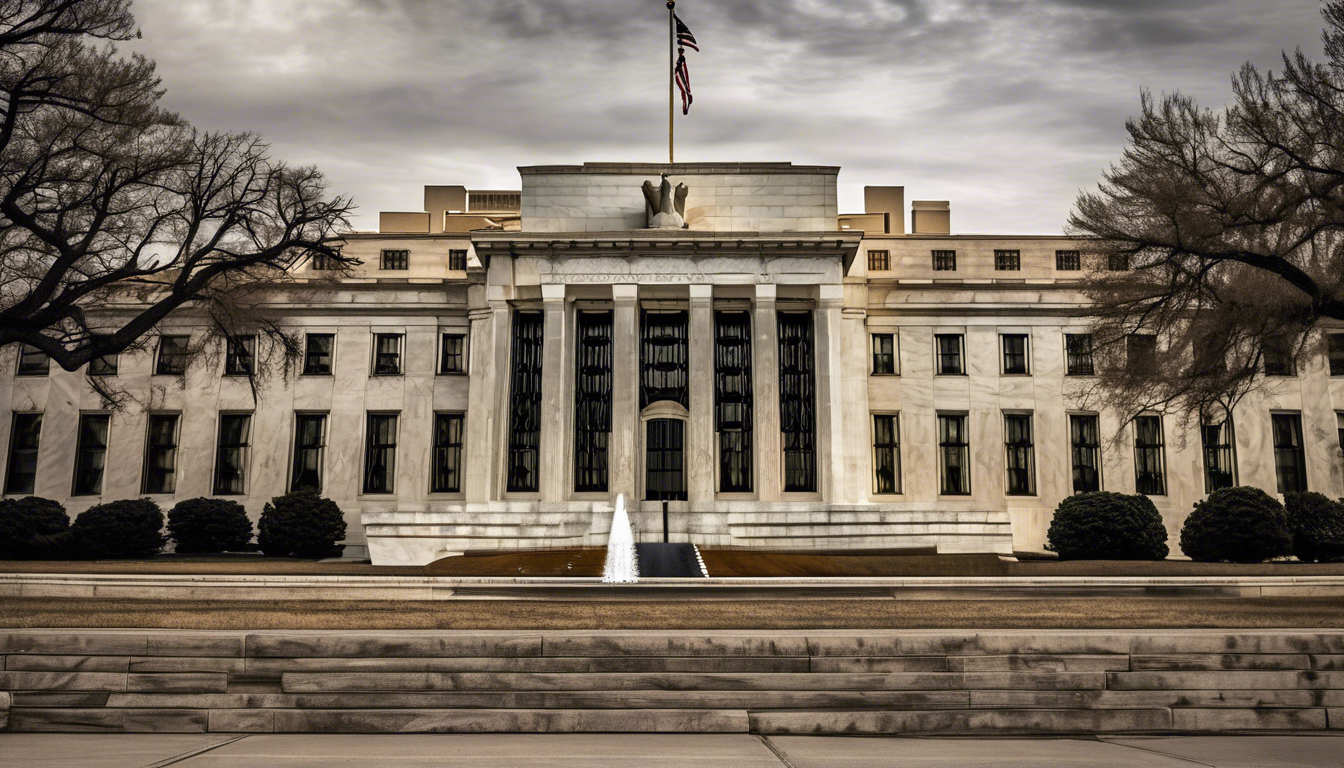
Former President Donald Trump has publicly called for the resignation of Federal Reserve Governor Lisa Cook, marking his latest attack on the central bank’s leadership. The demand represents an escalation in Trump’s ongoing criticism of Federal Reserve monetary policy and its impact on the American economy.
Background
Lisa Cook became the first Black woman to serve on the Federal Reserve Board of Governors when she was confirmed by the Senate in May 2022. Her appointment came during a period of significant economic challenges, including rising inflation and concerns about post-pandemic economic recovery. Cook brought extensive academic and policy experience to the role, having previously served as an economics professor at Michigan State University.
The Federal Reserve operates as an independent central banking system, designed to make monetary policy decisions without direct political interference. This independence has been a cornerstone of American economic policy for decades, allowing the Fed to focus on its dual mandate of maintaining price stability and full employment. The central bank’s governors serve 14-year terms specifically to insulate them from short-term political pressures.
Trump’s relationship with the Federal Reserve has been consistently contentious throughout his political career. During his presidency from 2017 to 2021, he frequently criticized Fed Chairman Jerome Powell and other officials for their interest rate decisions. Trump’s public attacks on Fed independence drew criticism from economists and policy experts who argued that political interference could undermine the central bank’s credibility and effectiveness.
Key Developments

Trump Targets Federal Reserve Governor in Political Attack
Trump’s call for Cook’s resignation comes amid broader discussions about Federal Reserve policy and its economic impacts. The former president has intensified his criticism of current Fed leadership as he positions himself for a potential 2024 presidential campaign. His statements reflect ongoing tensions between political figures and the traditionally independent central banking system.
The timing of Trump’s attack coincides with important economic discussions about inflation, interest rates, and monetary policy direction. Federal Reserve officials have been navigating complex economic conditions while maintaining their commitment to data-driven decision-making. Cook and other governors continue to focus on their statutory responsibilities despite external political pressure.
- Trump publicly demands Federal Reserve Governor Lisa Cook’s immediate resignation
- Former president escalates criticism of Fed’s monetary policy decisions
- Cook continues serving as first Black woman on Fed board
- Political pressure intensifies on traditionally independent central banking system
- Economic experts express concerns about political interference in Fed operations
The controversy highlights broader questions about the appropriate relationship between elected officials and independent regulatory agencies. Constitutional scholars and economic policy experts have long debated the balance between democratic accountability and technocratic expertise in economic governance. Trump’s approach represents a more direct challenge to institutional norms than typically seen in American politics.
Industry/Market Context
Financial markets closely monitor political developments affecting Federal Reserve independence and monetary policy direction. Investors and analysts recognize that central bank credibility plays a crucial role in maintaining economic stability and market confidence. Political interference in Fed operations could potentially create uncertainty that affects investment decisions and economic planning across various sectors.
The broader financial industry has generally supported Federal Reserve independence as essential for effective monetary policy implementation. Banking institutions, investment firms, and economic research organizations have historically advocated for maintaining the Fed’s ability to make decisions based on economic data rather than political considerations. This consensus reflects decades of experience with independent central banking practices.
International comparisons demonstrate the importance of central bank independence for economic stability and growth. Countries with more politically influenced monetary policy have often experienced greater economic volatility and reduced investor confidence. The Federal Reserve’s independence has been viewed as a key strength of the American economic system by international observers and trading partners.
Implications & Risks
Trump’s attack on Governor Cook raises significant concerns about the potential politicization of monetary policy if he returns to office. Legal experts note that while presidents nominate Fed governors, they cannot unilaterally remove them from office except for cause. This protection exists specifically to maintain central bank independence and prevent political retaliation against governors who make unpopular but economically necessary decisions.
The precedent of publicly demanding Fed officials’ resignations could encourage other political figures to similarly pressure central bank leadership. Such developments might gradually erode the institutional norms that have protected Federal Reserve independence for generations. Economic historians point to examples from other countries where political interference in central banking led to poor economic outcomes and reduced international credibility.
Market participants express concern that continued political attacks on Fed independence could affect the central bank’s ability to respond effectively to future economic crises. The Federal Reserve’s credibility and independence have been crucial tools for managing economic downturns and financial market stress. Any erosion of these capabilities could limit policy options during future economic challenges and potentially worsen their impacts.
What’s Next

Trump Federal Reserve — Trump Targets Federal Reserve Governor in Political Attack
Governor Cook is expected to continue serving her term despite Trump’s demands for resignation. Federal Reserve officials have historically maintained their focus on monetary policy responsibilities even when facing political criticism. The central bank’s institutional structure provides protections that allow governors to fulfill their duties without succumbing to external political pressure from any source.
Political observers anticipate that monetary policy and Federal Reserve independence could become significant issues in the 2024 presidential campaign. Trump’s criticism of current Fed leadership suggests he might propose changes to central banking operations if elected. Such proposals would likely face significant opposition from economists, financial markets, and lawmakers who support maintaining Fed independence.
The broader debate about Federal Reserve governance may continue regardless of specific electoral outcomes. Constitutional scholars and policy experts are likely to examine whether existing protections for central bank independence remain adequate in an era of increased political polarization. These discussions could influence future reforms to strengthen institutional safeguards for independent monetary policy making.
The controversy surrounding Trump’s demands highlights the ongoing tension between democratic accountability and technocratic expertise in economic governance, with implications that extend far beyond any single political figure or Fed official. The resolution of these tensions will likely shape American monetary policy and economic institutions for years to come, affecting everything from inflation management to financial stability and international economic relationships.
Read More:
- VP Vance Faces Protests During DC Photo Op with Trump Nominees
- Meta AI Transforms Hiring Practices as Platform Expands Rules
- Google Pixel 10 Leaks Reveal Qi2 Charging and Design Changes






